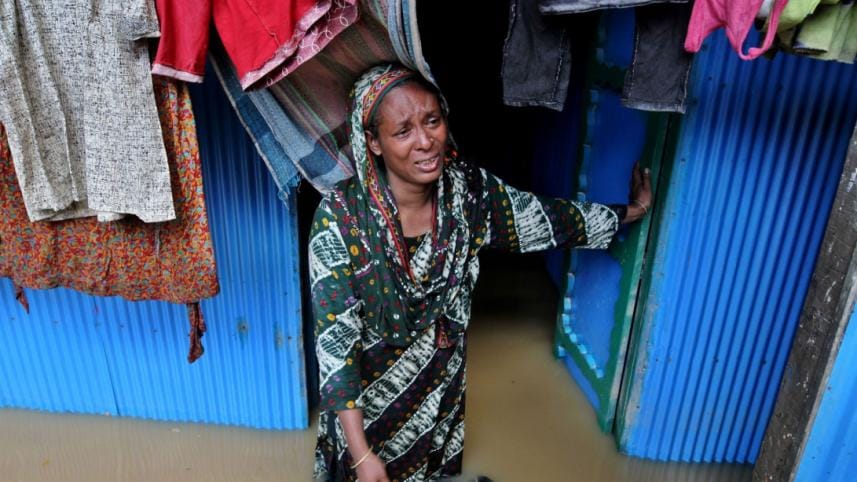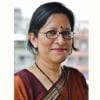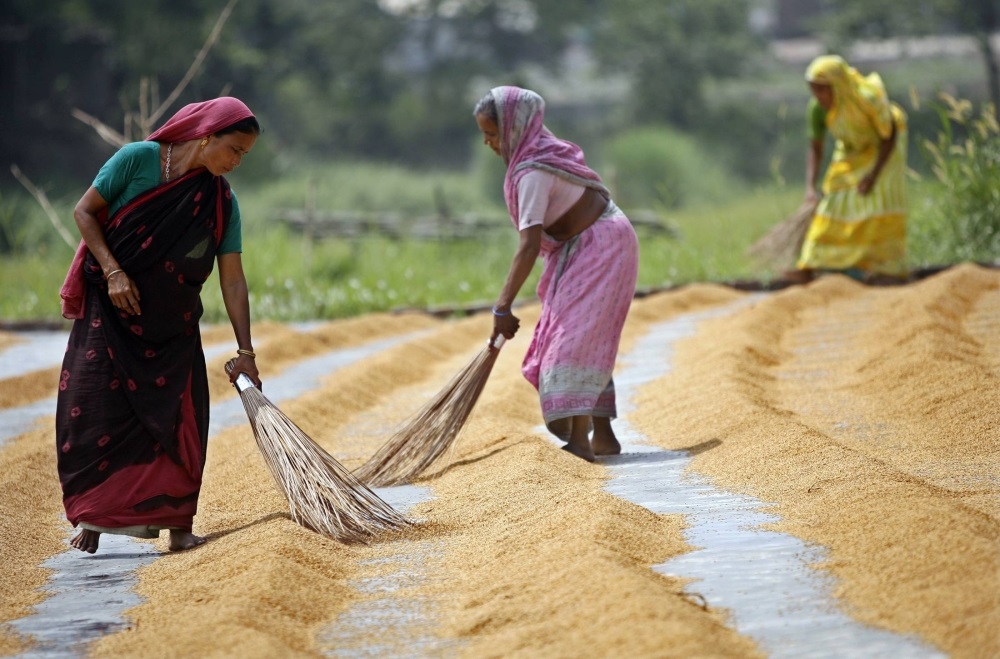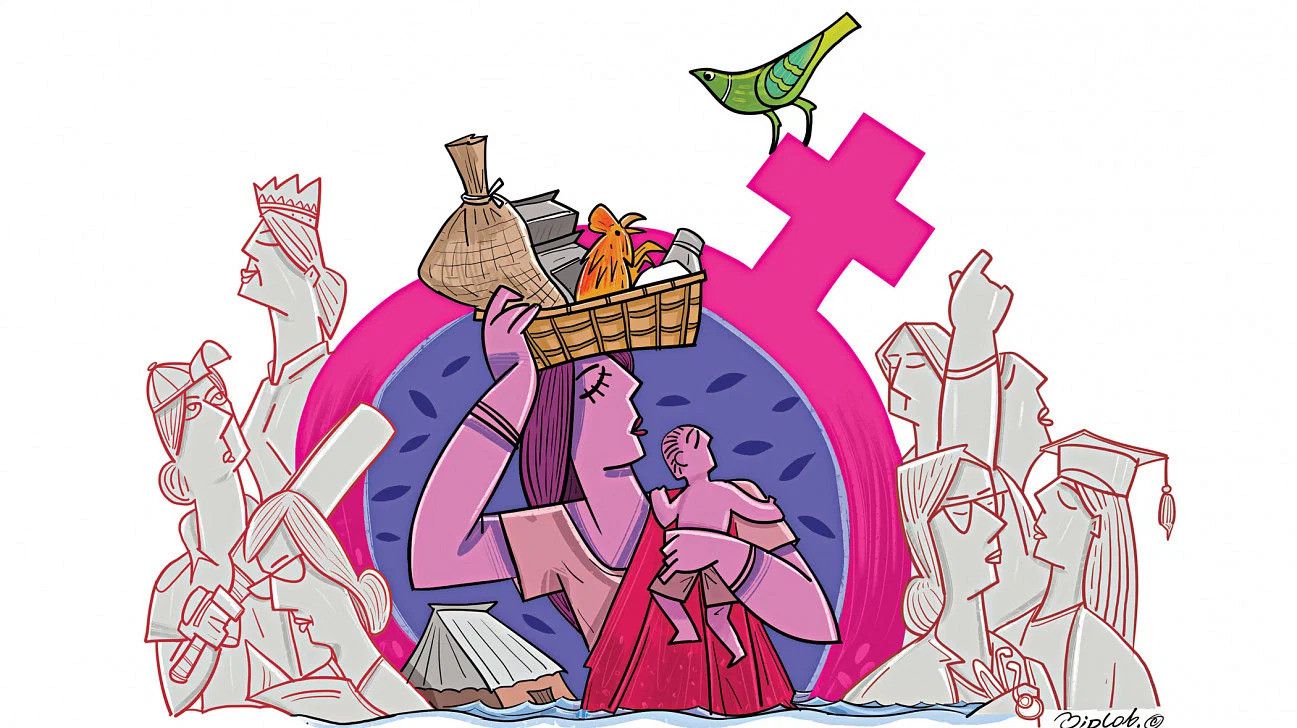For a climate-resilient urban future, we need empowered women

Bangladesh, as a low-lying deltaic country with a high-density population of over 17 crore, faces severe impacts of climate change such as rising sea levels, increased flooding, and more frequent natural disasters. These challenges disproportionately affect women, who comprise over half of the population and face compounded vulnerabilities due to poverty, gender inequality, and limited resources.
Women are generally more vulnerable to climate change than men because they make up the majority of Bangladesh's poor, with over 50 percent of women living below the national poverty line. Moreover, their vulnerability is exacerbated due to existing gender inequalities and socioeconomic factors. Women are particularly impacted in urban slums and informal settlements, where inadequate infrastructure, poor sanitation, and lack of essential services exacerbate their struggles.
According to certain studies, women are more likely to migrate than men due to the loss of livelihoods, food insecurity, and lack of adaptation options in their villages. The communities migrate to urban settlements, and this is not new: a major influx occurred after the cyclones in 1970 and 1991, Cyclone Sidr in 2007, Cyclone Aila in 2009, and post floods. Yet, we struggle to find a clear plan for developing infrastructures and services in the cities/urban settings, which is why we find inadequate temporary shelters in the cities.
Climate change drives migration from rural to urban areas, stressing urban resources and infrastructure. This scenario is true not only in Dhaka but also in Chattogram, Khulna and Gazipur, to name a few cities. Women, often engaged in low-wage labour, face wage discrimination, health issues, malnutrition, and inadequate access to healthcare, particularly during pregnancy. The lack of safe water, sanitation, and affordable menstrual hygiene products further compounds their difficulties. Men in these settings also suffer from poor mental health, malnutrition, and drug addiction, indirectly impacting women's burdens.
On a strategic level, decision-makers and political experts have to pay attention to experts who have suggested that to avoid the worst impacts of climate change, we have to put an end to new fossil fuel projects. Reports have highlighted that the fossil fuel industry is exploiting women in low-income countries, violating their rights and causing unimaginable climate destruction. These negative impacts will continue unless countries like Bangladesh, from the LDC group, and small nation states work collectively for a just transition to renewable energy pathways.
It is important to remind ourselves that adaptation strategies and pathways will not work unless global leadership is serious about meeting the emission reduction target. In 2024, the average global temperature rise has already been perilously close to an increase of 1.5 degrees Celsius above pre-industrial levels. As things stand, current emissions reduction commitments put the world on track for a global temperature rise of 2.6-2.8 degrees Celsius this century, and the actions needed to meet these commitments are insufficient. An urgent phase-out of fossil fuels is essential to keep global warming to 1.5 degrees Celsius.
In urban spaces, heat-related issues have become a major concern as the poor have limited resources and knowledge to deal with it. Efforts at a national level to address these issues must include gender-responsive climate adaptation pathways. Urban institutions and authorities need to be empowered, decentralised, and provided with a separate budget to serve their constituencies. First and foremost, the policymakers require disaggregated data.
Empowering women through education, resource access, and participation in decision-making processes enhances community resilience. Policies like the Bangladesh Climate Change and Gender Action Plan (CCGAP) provide frameworks to integrate gender considerations, but they require improved implementation and monitoring. Women's leadership in local governance and climate initiatives, such as women-led emergency response groups and Reflect Circles at community levels, demonstrates the potential for inclusive and effective disaster response. Sustainable solutions demand gender-sensitive urban planning, enhanced access to climate finance, and community-based interventions to build resilience and equity.
It is critical to enhance and increase access of women, youth, and marginalised communities to climate finance, DRR and humanitarian funding, including by supporting women's organisations to access funding from national and international funding bodies and other multilateral mechanisms generally and those focusing on urbanisation and development.
Farah Kabir is the country director of ActionAid Bangladesh.
Views expressed in this article are the author's own.
Follow The Daily Star Opinion on Facebook for the latest opinions, commentaries, and analyses by experts and professionals. To contribute your article or letter to The Daily Star Opinion, see our guidelines for submission.




 For all latest news, follow The Daily Star's Google News channel.
For all latest news, follow The Daily Star's Google News channel. 

Comments